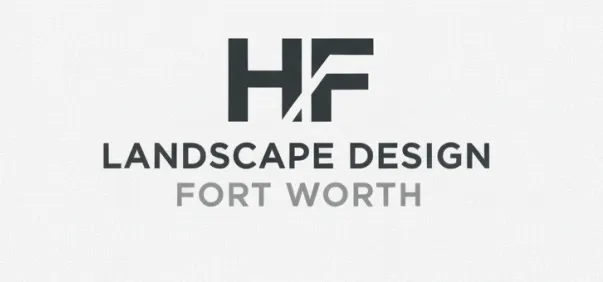HF Landscape Design Fort Worth
Professional Landscape Design Services in Fort Worth, TX
So you're thinking about finally doing something with your yard? You need someone who actually knows Fort Worth and understands what works here. That's us—HF Landscape Design Fort Worth. We've been designing and installing landscapes in this area for years. Doesn't matter if you're in an older Arlington Heights home that needs a front yard refresh, out in Ridglea with a backyard that's just grass and nothing else, or over near the Cultural District trying to figure out what to do with a sloped lot.
We're local. We understand Fort Worth's clay soil—drainage issues—foundation concerns. We know which plants survive July heat—unpredictable freezes—hail damage. When you call HF Landscape Design Fort Worth, you're getting a team that designs specifically for North Texas conditions. We create outdoor spaces that actually thrive here, not just look good for a couple months.
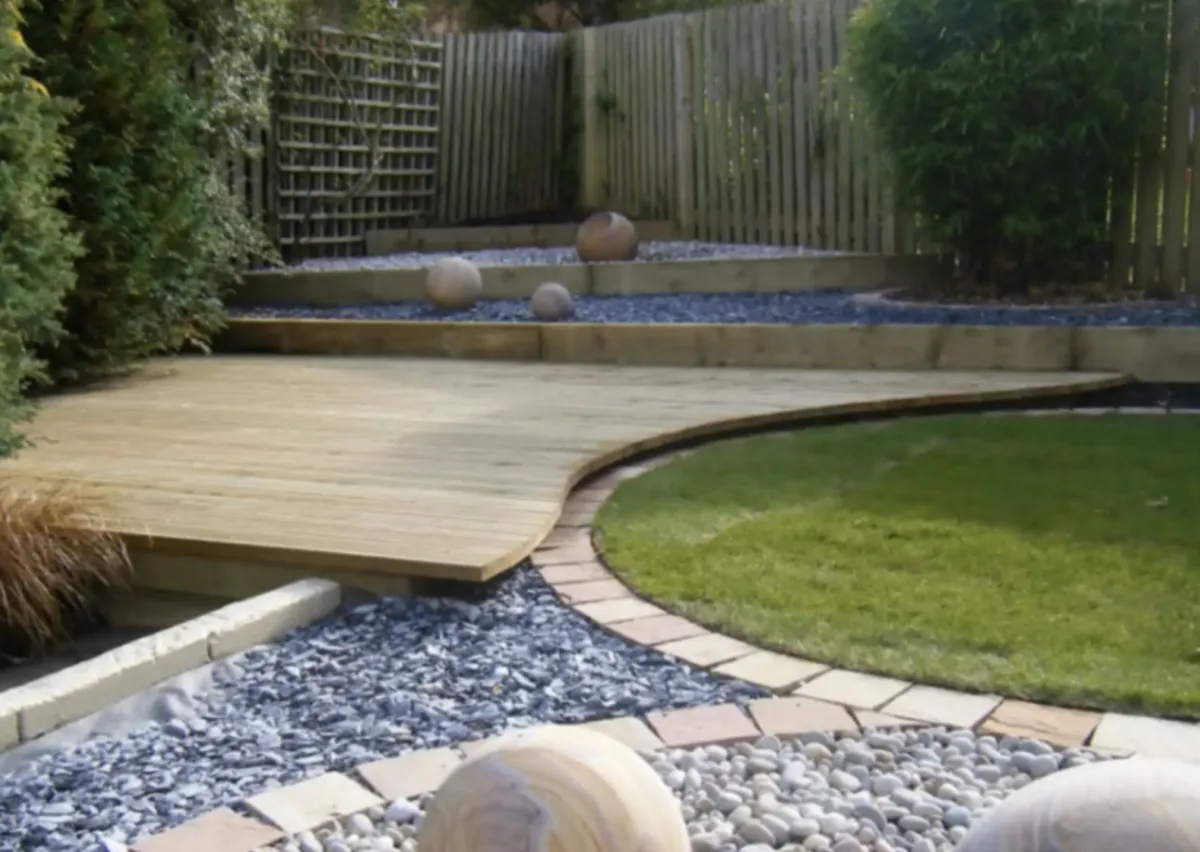
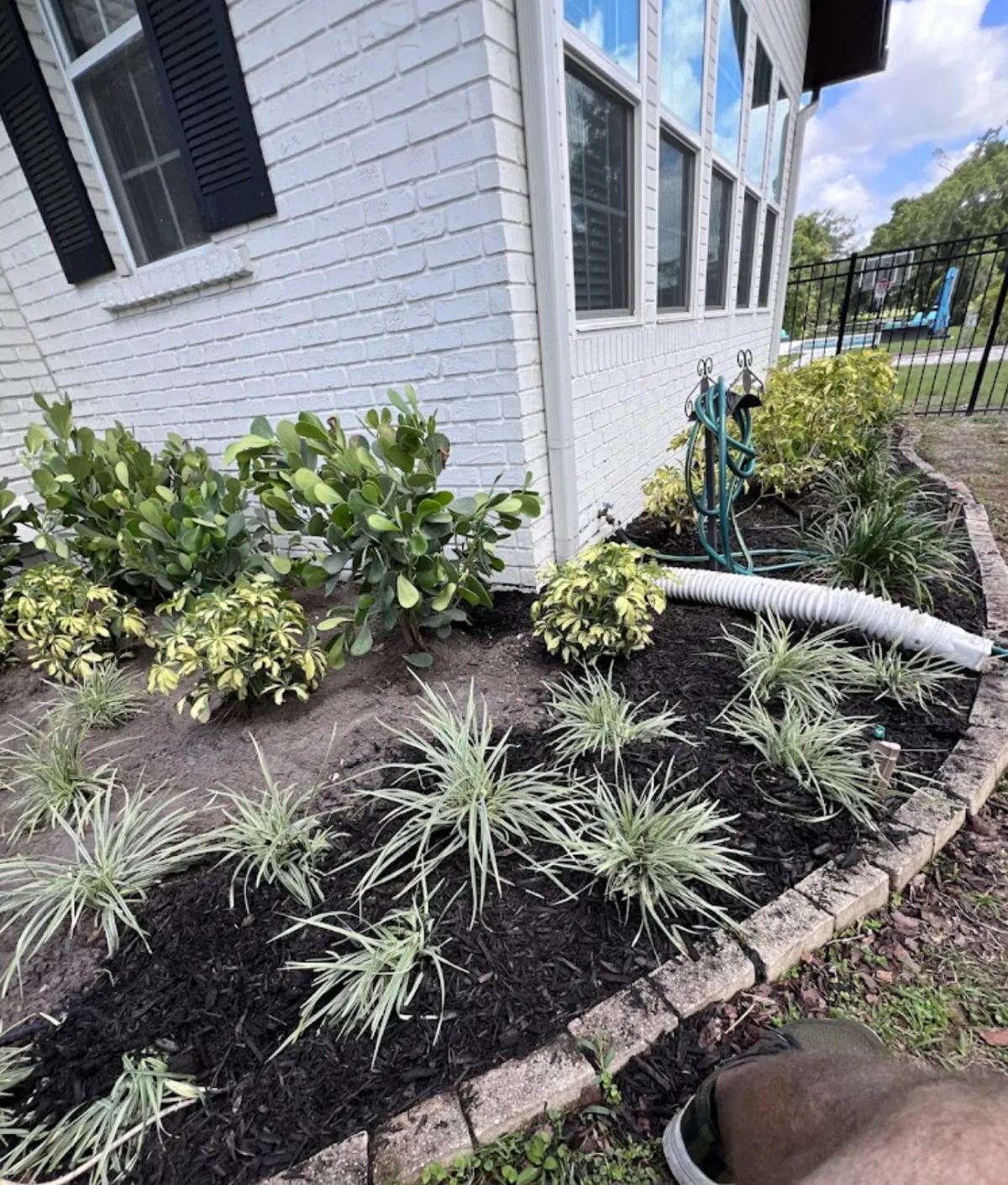
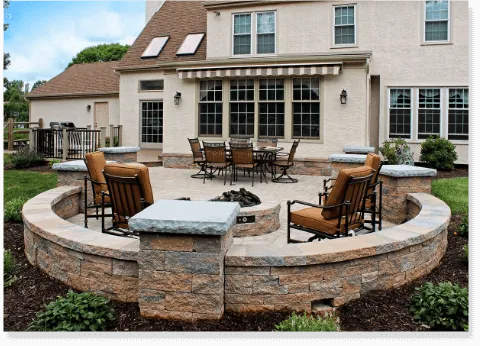
Custom landscape design starts with understanding your property—existing conditions—how you actually want to use your outdoor space. We don't show up with cookie-cutter plans trying to force the same design on every Fort Worth property. Your yard in Tanglewood has different conditions than a new build in Walsh Ranch or an established home near TCU. Soil drainage, sun exposure, existing trees, slope—all these factors shape what works and what doesn't.
We begin with site assessment—walking your property—identifying problem areas and opportunities. Maybe water pools near your foundation after storms. Could be your front yard gets afternoon sun that scorches everything by August. Or you've got mature trees providing great shade but nothing growing underneath them. We note all of it before designing anything.
Then we discuss goals and lifestyle needs. Some clients want low-maintenance landscapes—minimal watering—not spending weekends on yard work. Others want outdoor entertaining spaces—built-in seating—landscape lighting for evening gatherings. Families with kids need durable surfaces—open play areas—plants that aren't delicate. We design around how you'll actually use the space, not just what looks good in photos.
Plant selection happens based on Fort Worth's challenging climate. Clay soil that doesn't drain—summer heat reaching 105—occasional hard freezes in winter. We choose natives and adapted plants proven to handle these conditions. Texas sage, lantana, Mexican feathergrass, crape myrtles—plants that thrive here without constant intervention. We avoid high-maintenance specimens that struggle in typical North Texas conditions.
Hardscape integration is part of the design process too. Patios, walkways, retaining walls—these features need to work with your landscape design, not feel tacked on later. We plan where hardscape makes sense—how it connects different areas—materials that complement your home's style and handle our weather.
The design phase includes scaled drawings showing plant locations—hardscape placement—irrigation zones. You see exactly what goes where before installation starts. We specify actual plant varieties, not vague "shrub" labels. Material choices get detailed—flagstone versus pavers—decorative versus natural river rock. Cost estimates break down by category so you understand where money goes.
Design revisions are normal and expected. First draft rarely nails everything perfectly. We make adjustments based on your feedback—budget considerations—practical concerns that come up during review. The goal is a landscape design you're excited about that actually works for your Fort Worth property long-term.
Landscape architecture brings professional design expertise—technical knowledge—creative solutions to complex outdoor projects. While landscape design focuses primarily on plant selection and basic layout, landscape architecture addresses larger site challenges—grading and drainage engineering—structural elements—regulatory compliance for commercial projects.
Fort Worth properties often present significant challenges requiring architectural-level solutions. Steep slopes near Lake Worth—poor drainage in older neighborhoods—foundation issues caused by clay soil movement. A landscape architect approaches these problems with engineering principles—proper calculations—designs that solve problems rather than just covering them up.
Grading and drainage design is critical in Fort Worth. Our clay soil doesn't absorb water naturally—heavy storms cause flooding—improper grading leads to foundation damage. Landscape architects calculate slope percentages—design drainage systems—specify grading that moves water away from structures effectively. Over in areas like Westover Hills with significant elevation changes, professional grading design prevents erosion and creates usable outdoor spaces.
Retaining wall design requires structural knowledge—load calculations—proper footing design. Walls over certain heights need engineering stamps for permits. A landscape architect understands soil pressure—drainage behind walls—construction methods that ensure long-term stability. We've designed retaining systems throughout Fort Worth handling everything from minor slope changes to major elevation drops.
Hardscape structures like outdoor kitchens—pergolas—pavilions need architectural planning. Gas line routing, electrical requirements, proper footings, material specifications—these details matter tremendously for safety and longevity. Landscape architects coordinate with other trades—ensure code compliance—design structures that integrate aesthetically with overall landscape design.
Commercial landscape architecture involves additional complexity—ADA compliance—municipal code requirements—parking lot landscaping standards. Projects near downtown Fort Worth or commercial developments in Alliance area require professional design meeting city regulations. Landscape architects understand these requirements and design accordingly from the start.
Site master planning helps property owners envision long-term development. Rather than piecemeal additions over time, a master plan shows phased development—future expansion areas—infrastructure placement for eventual build-out. Particularly valuable for larger residential properties or commercial sites where development happens in stages.
Environmental considerations factor into landscape architecture—stormwater management—native habitat preservation—sustainable design practices. Fort Worth's Trinity River watershed has specific requirements for some properties. Landscape architects design solutions meeting environmental regulations while creating functional outdoor spaces.
We bring landscape architectural expertise to Fort Worth projects needing professional design—engineering solutions—complex problem-solving. Whether residential projects with challenging site conditions or commercial developments requiring full architectural services, we provide designs that work technically and aesthetically for North Texas conditions.
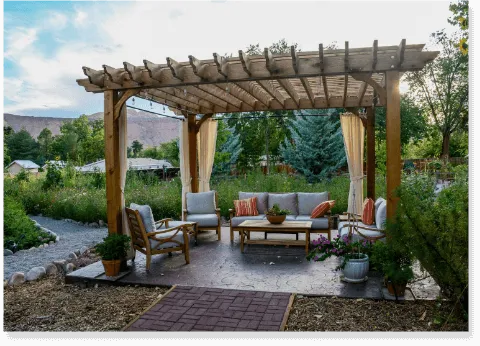
Landscaping installation turns designs into reality—experienced crews—proper techniques—quality results. We handle complete landscape installations throughout Fort Worth—planting—hardscaping—irrigation—everything needed to transform your outdoor space from plan to finished landscape.
Our installation crews know Fort Worth conditions inside out. They've worked in the clay soil—dealt with July heat—installed hundreds of landscapes across every neighborhood. Experience matters tremendously when actually putting plants in the ground and building hardscape features that last.
Planting installation starts with proper soil preparation. Fort Worth clay needs amendment—compost—expanded shale—organic matter that improves drainage and root growth. We don't just dig holes and drop plants in. Holes get sized correctly—soil gets amended properly—plants get positioned at correct depth. Root balls get roughed up if pot-bound. Mulch goes down at proper depth to retain moisture during establishment.
Tree installation requires particular care. Mature trees are investments—expensive—take years to establish if planted wrong. We handle root balls carefully—plant at proper depth—stake only when necessary—water adequately during establishment. Over in areas like Monticello with mature tree canopies, we understand how to work around existing root systems when adding new plantings.
Sod installation happens when temperatures cooperate—not mid-summer—proper soil prep underneath. We grade carefully for drainage—add topsoil where needed—lay sod tight without gaps. St. Augustine is most common in Fort Worth—handles our conditions well—establishes relatively quickly with proper watering.
Hardscape installation demands precision and experience. Paver patios need proper base—correct compaction—edge restraints that prevent shifting. Flagstone requires different techniques—mortar or sand setting—jointing that handles our freeze-thaw cycles. Retaining walls need engineered bases—proper drainage—construction that handles soil pressure long-term.
Irrigation installation integrates with landscape design—zone coverage—efficient water delivery. We trench lines carefully to avoid damaging existing utilities or tree roots. Install quality valves—properly positioned heads—controllers programmed for different zone needs. System gets tested thoroughly before covering trenches and finalizing installation.
Landscape lighting installation happens during main construction—wiring buried—transformers located practically—fixtures positioned for best effect. LED fixtures installed at proper angles—wiring protected in conduit—connections made weatherproof. We test everything before backfilling.
Projects progress systematically—hardscape first—irrigation lines—planting—final grading and cleanup. We don't jump around randomly. Logical sequencing prevents rework and protects finished elements during remaining construction. Crews clean up daily—haul debris—leave job sites neat rather than looking like construction zones indefinitely.
Quality control happens throughout installation. We check work as it progresses—verify plants match design specs—ensure hardscape meets quality standards. Problems get addressed immediately, not after project completion when fixing things becomes difficult.
Installation timelines depend on project scope—weather cooperation—material availability. We provide realistic schedules and communicate if anything changes. Most residential landscapes install within one to three weeks depending on size and complexity.
General contracting services handle complete outdoor projects—beyond just landscaping—coordinating multiple trades—delivering finished outdoor living spaces. When your project includes structures, utilities, major site work, or renovations requiring various specialists, general contracting ensures everything coordinates properly from start to finish.
Outdoor living projects often involve multiple trades—landscaping—electrical—plumbing—carpentry—masonry. Someone needs to coordinate scheduling—manage subcontractors—ensure work progresses logically. As general contractors, we handle project management so you're not coordinating between different companies hoping everyone shows up when needed.
Outdoor kitchen projects require general contracting—gas lines—electrical circuits—plumbing for sinks—structural framing for cabinets and counters. These aren't simple landscape additions. Licensed plumbers run gas lines safely—electricians wire outlets and lighting properly—masons build durable structures. We coordinate all trades—pull necessary permits—ensure inspections happen when required.
Pool landscaping involves general contracting when integrating hardscape—decking—plantings—lighting around new or existing pools. Equipment screening, pool equipment access, drainage around deck areas, plant selection avoiding pool maintenance issues—all these factors need coordination. We work with pool companies—coordinate timing—deliver complete outdoor spaces rather than disconnected elements.
Pergola and pavilion construction requires carpentry—electrical for lighting and fans—sometimes concrete footings—permits for structures over certain sizes. We handle complete construction—engineered designs when needed—quality materials that handle Fort Worth weather. Cedar or treated lumber for longevity—proper joinery—finishes that protect wood from sun and moisture.
Major site work like significant grading—driveway installation—large retaining systems—requires general contracting coordination. Heavy equipment operators, drainage specialists, concrete crews, landscapers—all these trades need to work in proper sequence. We manage scheduling and logistics so projects progress efficiently.
Home additions affecting outdoor spaces need general contracting—foundation work—utility relocations—landscaping restoration after construction. When homes expand into yards, existing landscapes get disrupted. We coordinate with home builders—protect what can be saved—restore landscaping after construction completes.
Commercial projects almost always require general contracting—site development—ADA compliance—municipal code requirements—inspections and permits. Projects in Fort Worth's commercial areas need professional project management coordinating civil engineering—utilities—landscaping—hardscaping into cohesive site development.
Renovation projects often uncover surprises—old irrigation lines—drainage issues—utility conflicts. General contractors handle these situations—coordinate solutions—keep projects moving forward rather than stalling when complications arise. Experience managing complex projects means fewer surprises and better problem-solving when issues do appear.
We pull permits when required—schedule inspections—ensure work meets code—coordinate with city officials. Fort Worth permit requirements vary by project type and location. We understand local regulations and handle compliance so you don't have to figure out city processes.
Budget management is part of general contracting—tracking costs—managing change orders—keeping projects financially on track. We provide detailed estimates upfront—document changes clearly—help you make informed decisions when options arise during construction.
Timeline management keeps projects progressing—scheduling trades appropriately—ordering materials with proper lead times—coordinating work to avoid delays. We communicate schedule updates and address issues proactively rather than reactively.
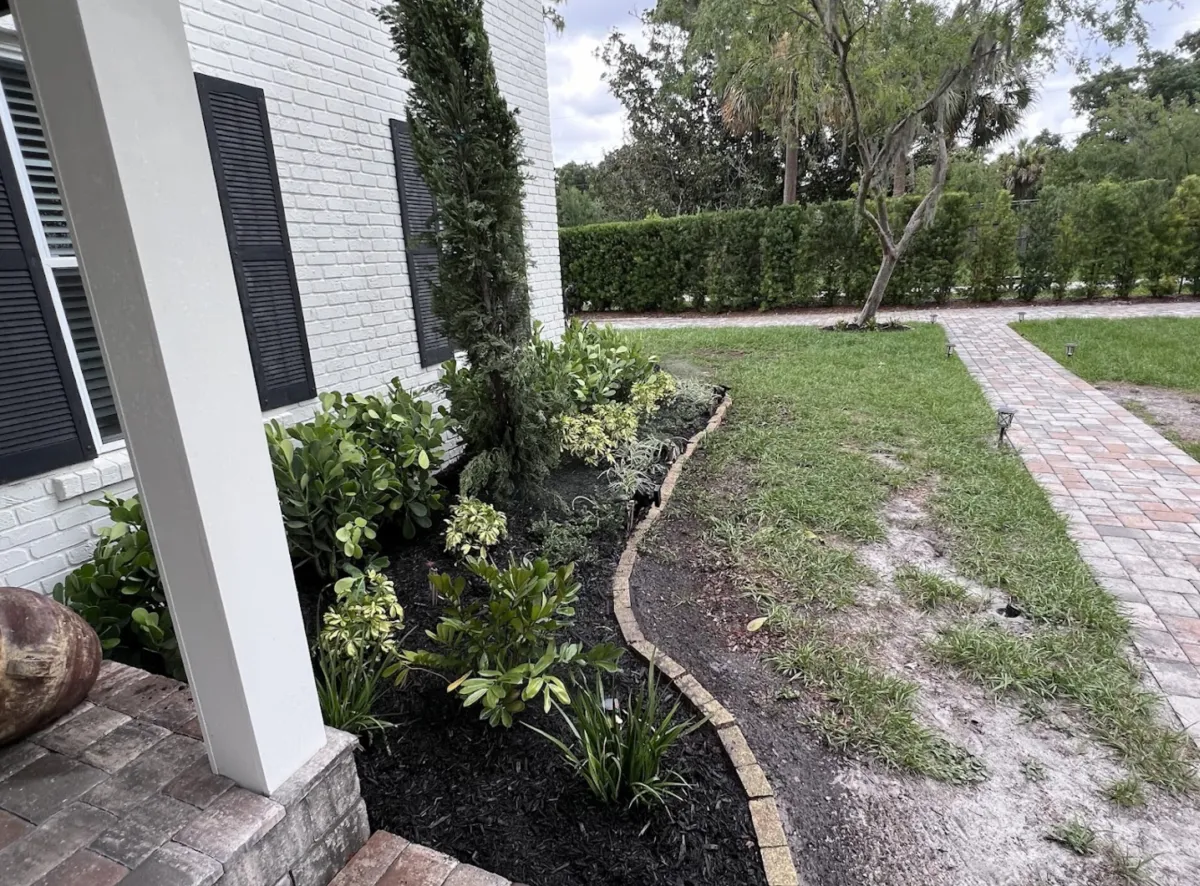

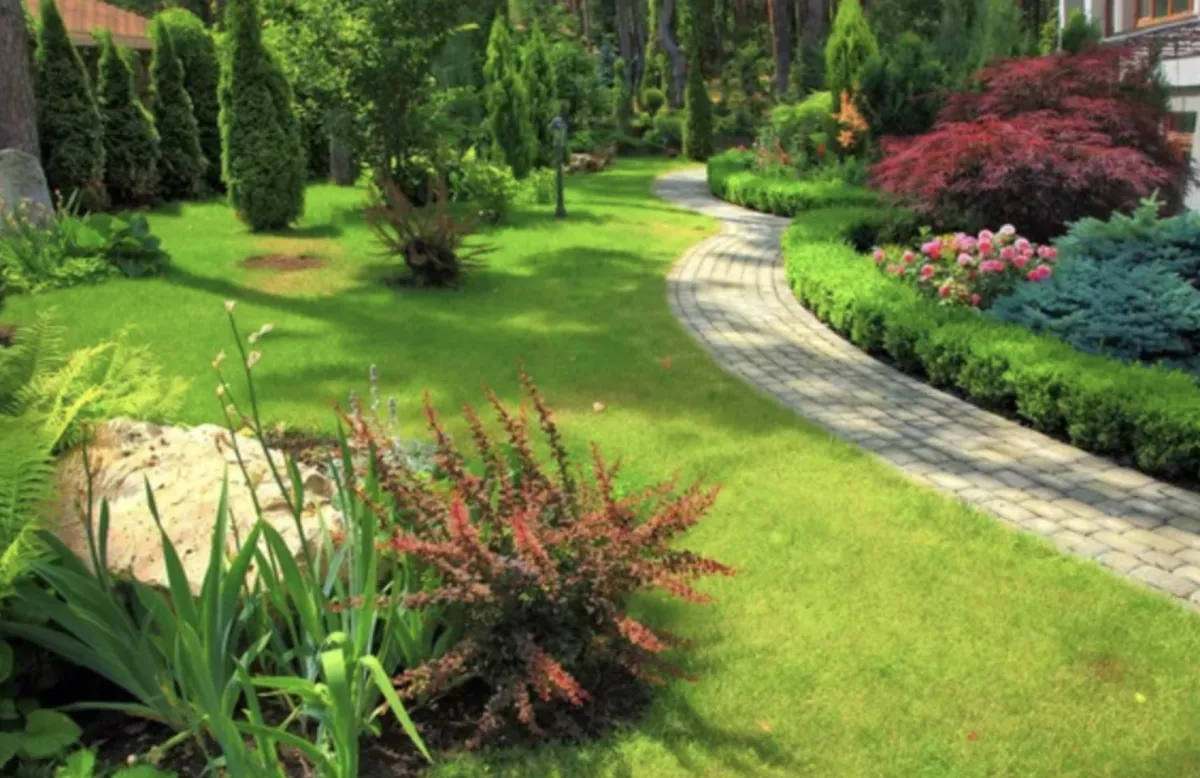
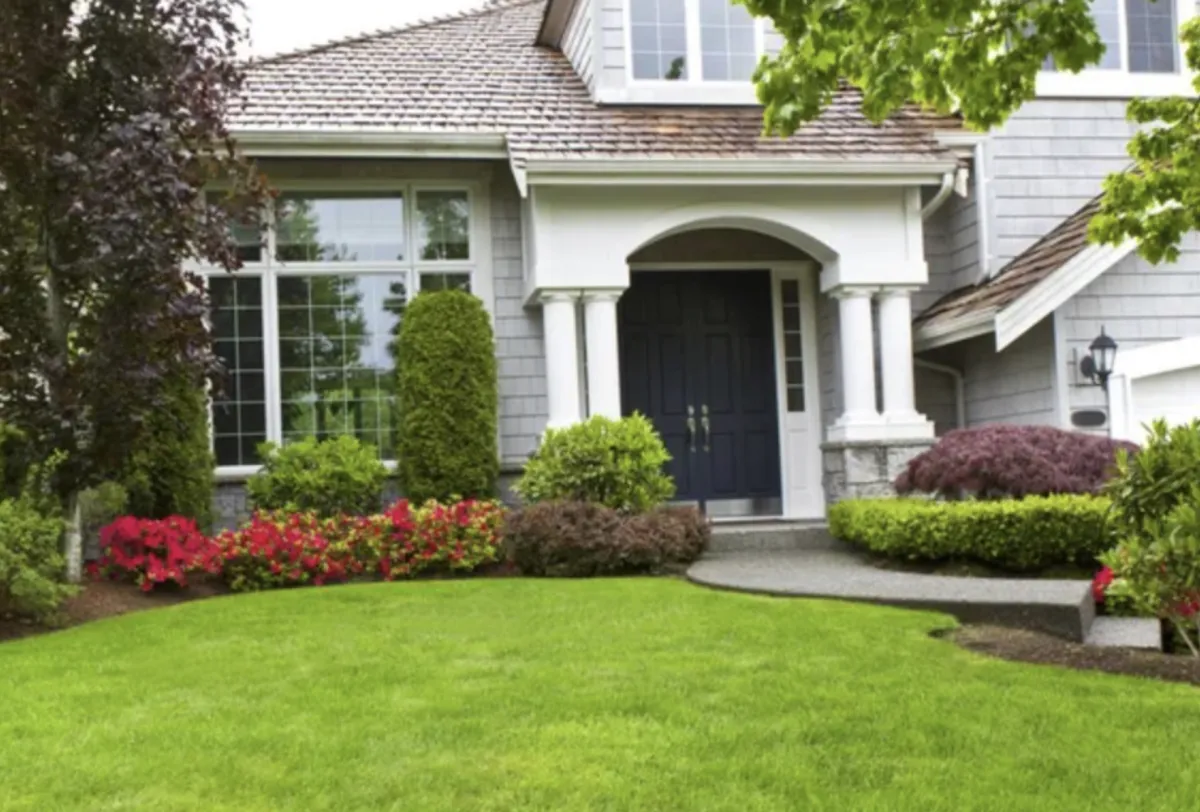
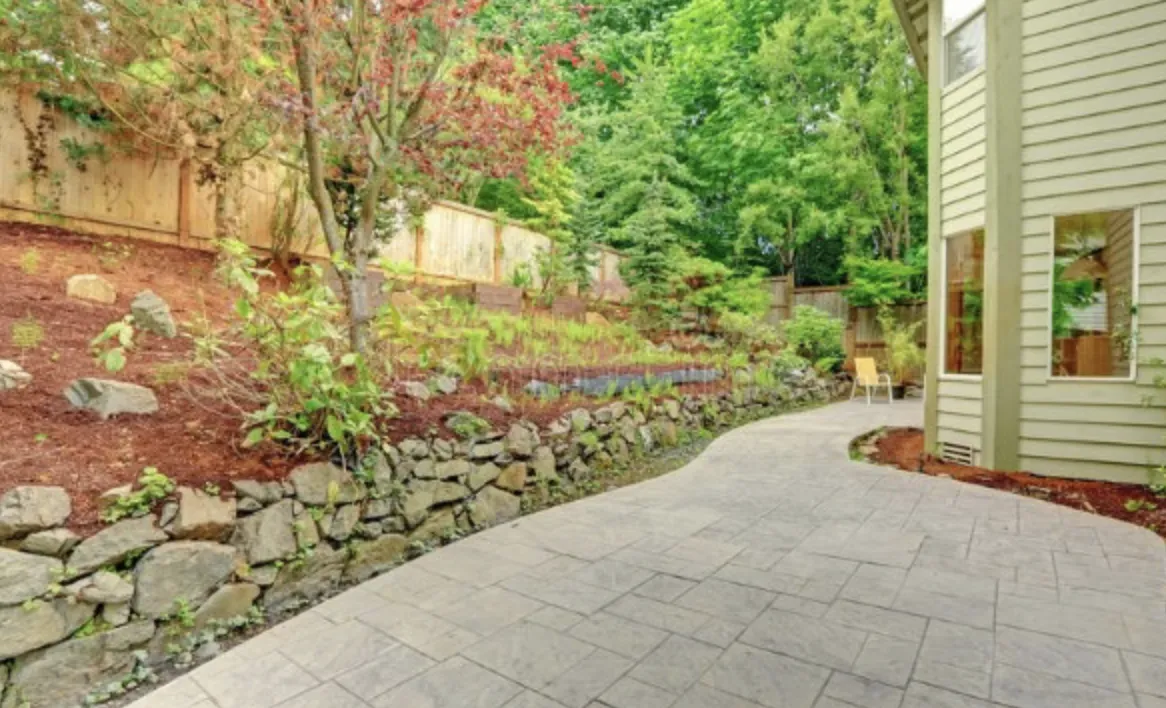

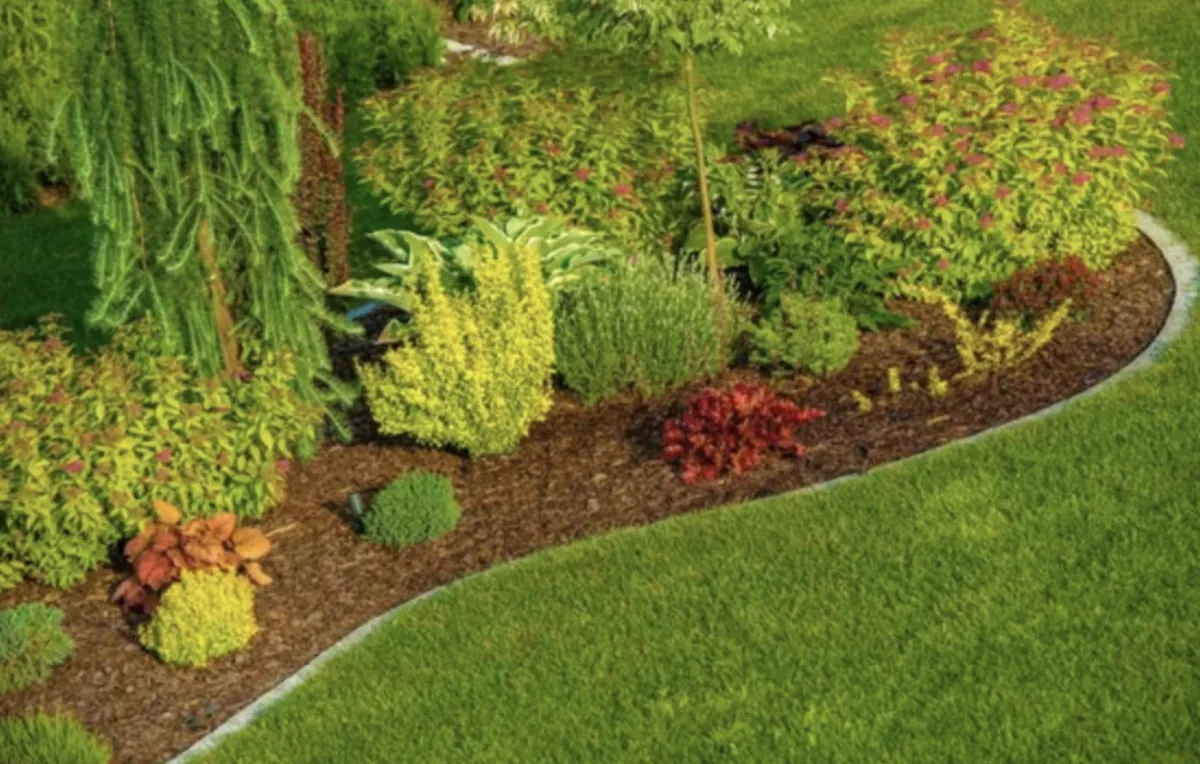

See What Our Customer Say About Us
Sarah M., Fort Worth, TX

“I can’t say enough good things about HF Landscape Design Fort Worth. They totally transformed our backyard into something out of a magazine — and they did it on time and within our budget. The team showed up early every day, cleaned up after themselves, and really listened to what we wanted. You can tell they actually care about the little details, not just getting the job done. Our neighbors keep stopping by asking who did the work — we tell everyone to call HF Landscape Design. Best decision we made for our home!”
Daniel R., Fort Worth, TX

“HF Landscape Design Fort Worth really blew us away. We had a plain front yard before, and now it looks like something you’d see in a design show. They helped pick the right plants for the Texas heat and even added lighting that makes the place glow at night. Super easy to talk to and very professional — they made the whole thing stress-free. We’d hire them again in a heartbeat.”
Megan & Tyler H., Fort Worth, TX

“Our backyard was just dirt and weeds before HF Landscape Design came in. Now it’s the spot where we spend every weekend with friends. They built a patio, added flower beds, and somehow made it all feel natural like it was always meant to be there. You can tell they love what they do — every detail was perfect. Highly recommend them to anyone in Fort Worth wanting a yard they’ll actually use.”
Ready to Transform Your Fort Worth Property?
Stop settling for a landscape that doesn't work. Whether you're dealing with drainage problems, outdated plantings, or bare ground that needs direction, we create designs that address Fort Worth's specific conditions and your property's unique challenges.
Call (817) 580-3329 to schedule a landscape consultation. We'll assess your property, discuss your goals, and provide a clear path forward for creating outdoor space that actually functions the way you need it to.
Serving Fort Worth and surrounding communities including Tanglewood, Ridglea Hills, River Crest, Westover Hills, Berkeley, Monticello, and Mistletoe Heights.
Frequently Asked Questions
What is the average cost of landscape design?
Landscape design costs in Fort Worth typically range from $2,000 to $8,000 depending on property size—project complexity—level of detail required. Simple front yard designs for smaller properties might run $1,500 to $3,000. Comprehensive landscape plans for larger properties with detailed planting plans—hardscape designs—irrigation layouts—lighting plans usually cost $5,000 to $10,000 or more. We typically credit design fees toward installation if you proceed with us for the work. Design-only services cost more since we're not recouping fees through installation. Most clients in areas like Tanglewood or Westover Hills invest in detailed designs because their properties warrant professional planning. Newer neighborhoods with simpler yards might need less extensive design work.
What does it cost for a landscape design?
Design fees depend on project scope and what you need included. Basic conceptual designs showing general layout—plant groupings—hardscape locations run $1,500 to $3,000 for typical residential properties. Detailed construction-level plans with exact plant specifications—hardscape dimensions—grading plans—irrigation zone maps cost $4,000 to $8,000 or higher for complex projects. Commercial landscape design involves additional complexity and typically costs more. We discuss your specific needs during initial consultation and provide design fee quotes based on actual scope. Design fees get credited toward installation when you hire us for the work. Fort Worth properties with challenging conditions—significant slopes—drainage issues—often need more detailed planning which affects design costs.
What is the difference between a landscape architect and a landscape designer?
Landscape architects have formal education—state licensing—ability to stamp engineering drawings for permits. They handle complex projects requiring grading engineering—structural calculations—commercial site development—regulatory compliance. Landscape designers focus on plant selection—aesthetic layout—residential design without engineering components. In Fort Worth, landscape architects are required for certain commercial projects—retaining walls over specific heights—projects needing engineered drainage solutions. Residential projects usually work fine with landscape designers unless you've got significant slope issues—major grading needs—structures requiring engineering stamps. Landscape architects cost more but bring technical expertise for complex projects. Most residential landscapes in neighborhoods like Arlington Heights or Ridglea work well with landscape designers. Larger estates or properties with serious site challenges benefit from landscape architectural services.
Why is landscape design so expensive?
Professional landscape design involves considerable time—expertise—detailed planning work. Designers spend hours on site assessment—measuring—analyzing drainage and sun patterns—researching plant options for specific conditions. Creating scaled plans requires CAD software skills—design knowledge—understanding of Fort Worth's climate and soil conditions. Good designers prevent expensive installation mistakes—plant failures—drainage problems that cost far more to fix later. You're paying for years of experience knowing what works in North Texas clay soil—which plants survive July heat—how to design irrigation zones efficiently. Design fees also cover revisions—client meetings—coordination with contractors during installation. Cheap or free designs often mean cookie-cutter plans—inexperienced designers—or design costs hidden in inflated installation prices. Professional design upfront saves money long-term by getting things right the first time.
What is the rule of 3 in landscaping?
The rule of three suggests planting in odd-numbered groups—typically three plants—creates more natural and visually appealing arrangements than even numbers. Three plants or features create triangular compositions—visual interest—balance without formal symmetry. This applies to groupings of the same plant variety or repeating design elements throughout the landscape. In Fort Worth landscapes, you might see three crape myrtles anchoring a bed—three groupings of ornamental grasses—three boulders in a natural arrangement. The rule helps avoid the static look of paired plantings or single specimens. Works for plants of various sizes—repetition of colors—hardscape feature placement. Not a strict requirement but a helpful design principle creating more dynamic landscapes. We use the rule of three alongside other design principles—proper spacing—mature size consideration—Fort Worth-appropriate plant selection.
What is a realistic landscaping budget?
Realistic budgets for Fort Worth landscape projects typically start around $10,000 for basic front yard renovations and run $20,000 to $50,000 for complete front and backyard transformations with hardscaping. Simple refreshes—new plants—mulch—irrigation repairs might cost $5,000 to $8,000. Projects including patios—retaining walls—outdoor kitchens—extensive plantings easily reach $50,000 to $100,000 or more. Budget depends on property size—existing conditions—how much hardscape you want—plant material quality and maturity. Fort Worth's clay soil often requires additional drainage work affecting costs. Established neighborhoods like Monticello with mature landscapes might need less work than new construction in Walsh Ranch starting from dirt. Quality materials and experienced installation cost more upfront but last longer and perform better in our climate.
